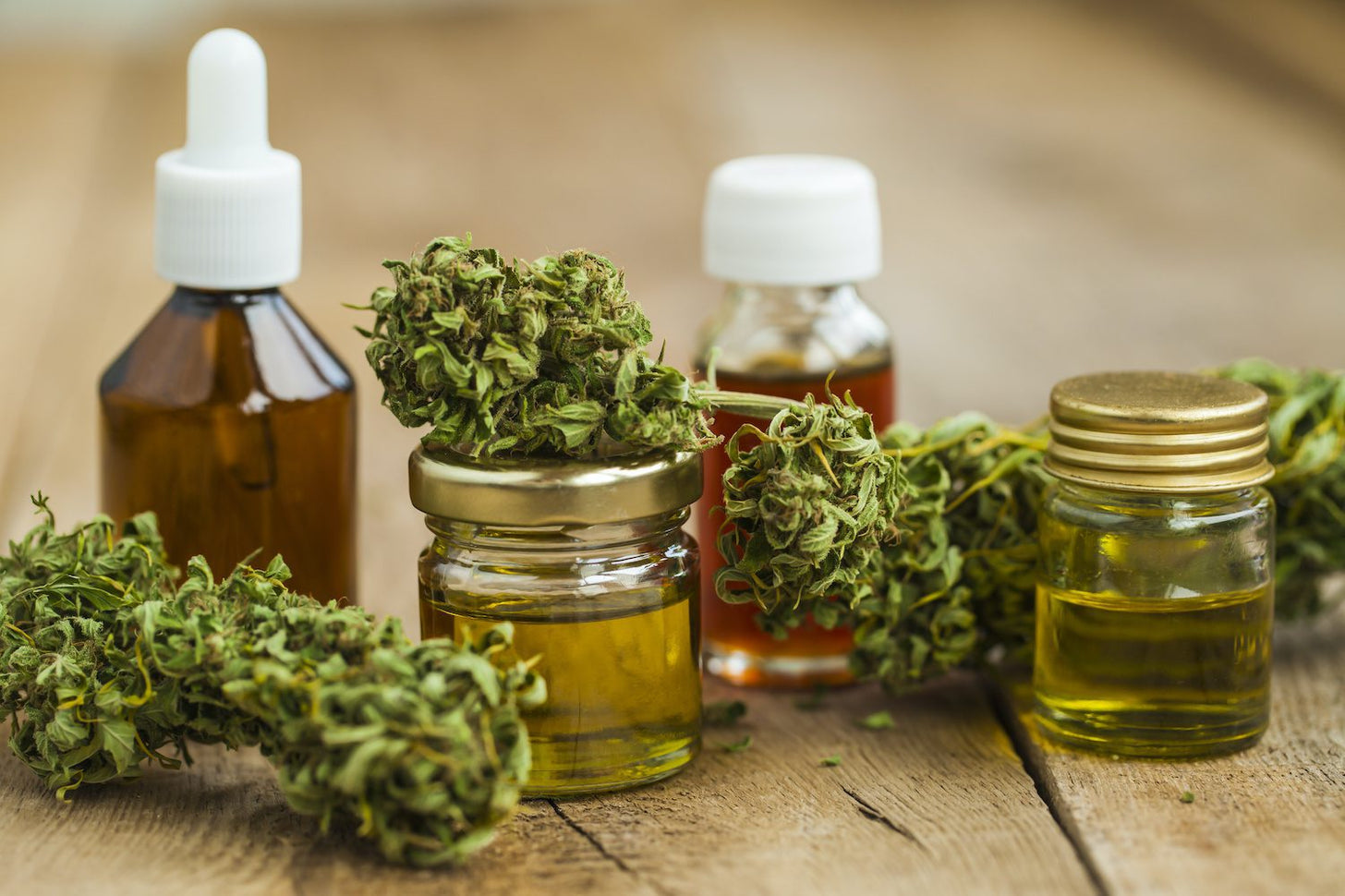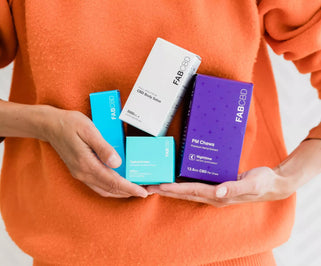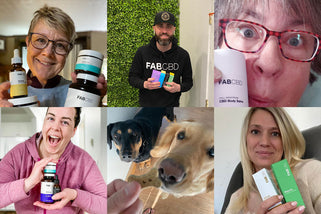
Full-Spectrum vs Broad Spectrum vs CBD Isolate: What's the Difference?
Updated September 2023
The meteoric rise in popularity of CBD, or cannabidiol, is astonishing. In 2022, the global CBD market size was valued at USD 6.4 billion, with an annual growth of 16.2%. One study from Forbes found that 60% of respondents have used or tried a CBD product and believe it offers some level of benefit.*
However, not all CBD products are created equal. In this blog post, we'll explore the differences between full-spectrum, broad-spectrum, and CBD isolate and some factors to consider for each one.
What is Cannabidiol?
CBD, or cannabidiol, is an active ingredient in cannabis plants, one of over 100 cannabinoids found in cannabis and hemp. Unlike THC tetrahydrocannabinol, the effects of CBD are not psychoactive.
CBD works by interacting with receptors in the endocannabinoid system, resulting in various effects and benefits.*
People can consume various kinds of CBD products, such as oils and tinctures, gummies and edibles, capsules, or even topical products like lotions and creams.
CBD spectrums can be divided into three categories: full-spectrum, broad-spectrum, and isolate. "Spectrum" refers to the availability of the compounds or extracts inside the CBD.
In the following sections, we'll get to know each type of spectrum thoroughly.
What is full-spectrum CBD?
Full-spectrum CBD is a CBD product with all the naturally occurring compounds found in cannabis or the hemp plant.
These compounds include terpenes, flavonoids, and other cannabinoids such as THC. Legally, CBD products can contain up to 0.3% THC by their dry weight. The presence of a wide range of active compounds means that they may work synergistically to enhance the effect.
Benefits of Full Spectrum CBD
These are the main benefits of full-spectrum CBD:
- Full-spectrum CBD could promote the entourage effect, whereupon all compounds in the hemp plant work together to create maximum impact.
- Many products are widely available due to the popularity of full-spectrum extracts.
Drawbacks of Full Spectrum CBD
Although it offers advantages, full-spectrum CBD also has its drawbacks.
- As mentioned, a full-spectrum CBD can contain trace amounts of THC up to 0.3%. In rare cases, the THC content can trigger a positive drug test. However, this is rare, as 0.3% THC is usually not enough to be detected in standard drug screens.
- Full-spectrum CBD may not be the best choice for pets. This might be because animal brains, especially canine, have more cannabinoid receptors than humans and a higher sensitivity to THC.
What is Broad Spectrum CBD?
The main difference between full-spectrum and broad-spectrum CBD is that broad-spectrum CBD contains every active compound that full-spectrum CBD offers, except for THC. This means that broad-spectrum CBD can potentially still promote the entourage effect without the risk of consuming THC.
Benefits of Broad Spectrum CBD
- Broad-spectrum CBD products still have an array of active compounds that may promote the entourage effect. It's perfect for people who want the same benefits* but have THC sensitivity or may be subject to drug tests.
- THC can be toxic to animals, which means broad-spectrum products are much safer for pets.
- THC products are subject to stricter regulation than CBD products. Consuming broad-spectrum CBD is safer if you live in a place where THC legality is unclear or more illegal.
Drawbacks of Broad Spectrum CBD
- Broad-spectrum CBD has no traces of THC, which could reduce the overall entourage effect of your CBD products.
- Broad-spectrum CBD may be harder to find as wide a range of products as full-spectrum products are more prevalent in the CBD market.

What is CBD Isolate?
CBD isolate is pure CBD, where all other compounds are removed with a solvent. This is usually done in a laboratory under strict safety standards and guidelines, and making isolate at home isn't recommended as the extraction process is complex and requires specialized equipment and a good understanding of chemistry.
When all other compounds are removed, this leaves 99% CBD extract in its purest form: a white, crystalline form of crystals or powder that is usually added to products like oils or gummies.
Isolate CBD products are not as popular and widely available as full-spectrum and broad-spectrum products, making them a less common alternative to the other two.
Full Spectrum vs. Broad Spectrum CBD: How to Choose
Choosing the right products depends on your needs and personal circumstances. You should consider the following factors before you decide.
Legality
As mentioned, THC regulations are more strict than CBD. Currently, CBD products are legal in most states in the US, while THC is still considered a gray area or illegal. A broad-spectrum CBD is the way to go if you want a safer bet.
Personal Preference
Another factor to consider is your personal preference. If you want a more holistic experience, you may prefer full-spectrum CBD products for a more effective entourage effect. On the other hand, those who have pets might want to stick to broad-spectrum products.
Drug Tests
Full-spectrum CBD may cause a positive drug test on rare occasions due to the low level of THC present in the products. While this risk is low, people who are subject to regular drug testing or concerned about drug tests might want to stick to broad-spectrum CBD to be extra safe.
THC Sensitivity
If you have THC sensitivity, full-spectrum CBD may cause side effects. To avoid this, you might choose broad-spectrum CBD products with no THC.

Buy Full Spectrum and Broad Spectrum Products Online
Ready to buy full spectrum or broad spectrum CBD? Fab CBD offers both full-spectrum and broad-spectrum CBD products made under the strictest guidelines that have all undergone third-party testing, like all the best CBD products.
For those who want it all, try our versatile and high-quality full-spectrum CBD oil that can be easily added to your daily regimen. But if you prefer to try broad-spectrum products, our Anytime CBD Gummies are available to give you a THC-free experience when you're out and about.

*This statement has not been evaluated by the Food and Drug Administration (FDA). This product is not intended to diagnose, treat, cure, or prevent any disease.
















